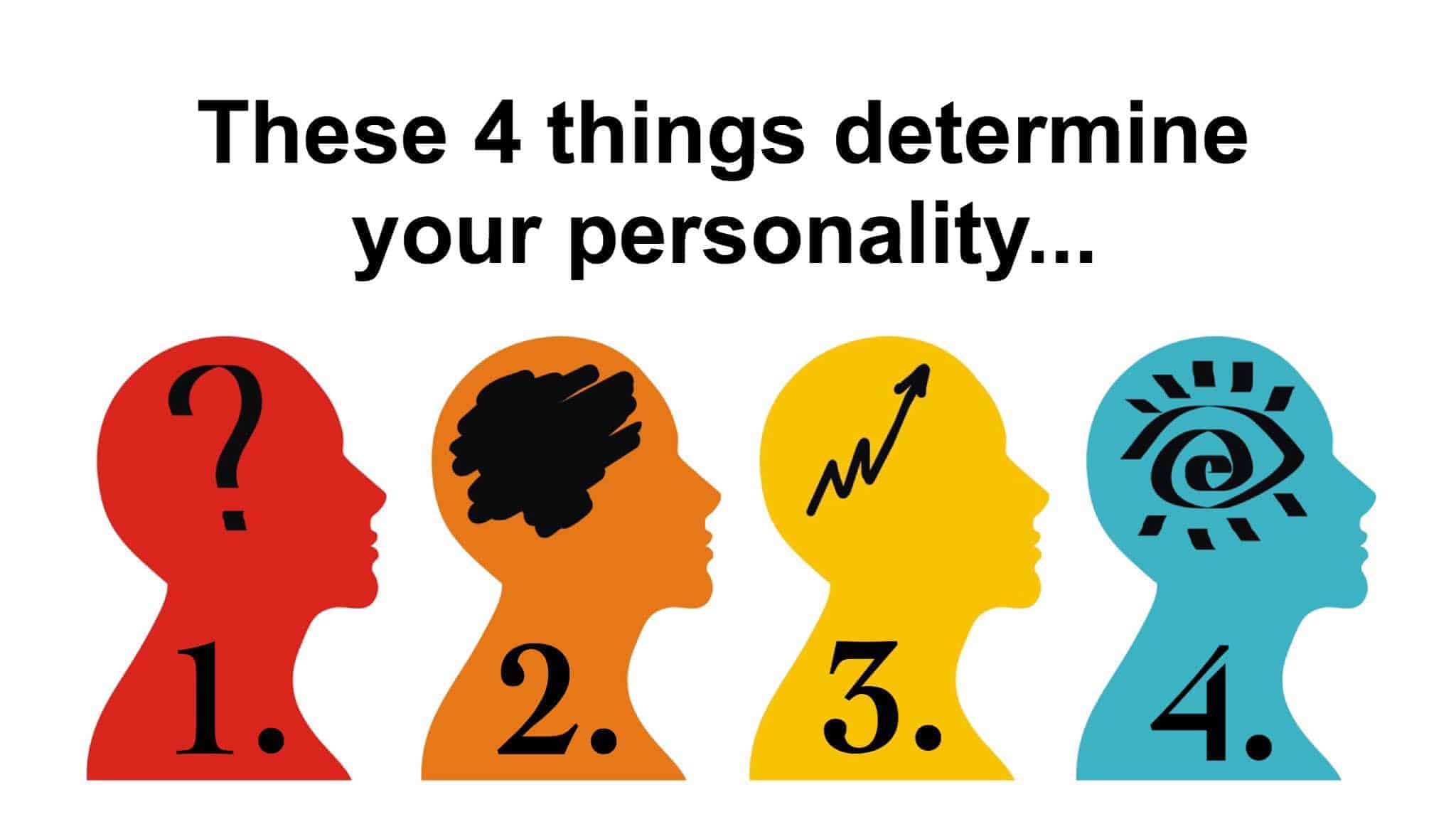You have a unique and memorable personality that belongs only to you. However, you might be surprised to learn that only four main elements determine how you became your unique self. You are just beginning to learn about the world when you are born, and you rarely think ‘Who am I?’ until you are a little older. Around the ages of the terrible twos, we begin to understand ourselves as separate from our parents, and we begin to reveal our personalities.
Psychologists Reveal The Four Main Elements That Determine Your Personality
Between the ages of 2 to 6, we develop our unique sense of self. It is then that these four main elements of personality begin to take shape and help us become who we are meant to be. However, not all of our personality development takes place in our childhood. So we will look at the main elements that form our early and later personalities.
1. Your genetic makeup
Your biological genetics are one main element that determines about 40% of the makeup of your personality. The genes passed down to you by your mother and father are the part that you have no control over. But don’t feel like you can’t change negative personality traits if you want to. The whole field of psychology helps people change themselves for the better.
So if you are born with an angry and aggressive personality, does that mean you’ll never be able to change? The short answer is no. Personality is not a constant throughout your lifetime. Researchers looked at the stability of personality traits from childhood to old age and found that while only about 30% of personality traits are stable during childhood years, this increases to 54% during college years and up to 74% between the ages of 50 and 70.
2. Your environment
The environment contributing to your personality can include where you live, cultural and spiritual influences, economic security, family, friends, and work experiences. Your social experiences help shape your personality because they help you learn what different looks like. In other words, you may see someone who is selfish or angry. In contrast, you recognize that you are generous and calm.
Researchers at King’s College London and the University of Wisconsin, and the University of Illinois at Urbana studied the workplace experiences of young adults and how these experiences helped shape their personalities. They found that ‘measures of personality taken at age 18 predicted both objective and subjective work experiences at age 26.’ In other words, scientists could predict if a person would like a job or not based on their personality and the type of career field that they chose. The research also found that work experiences were related to changes in personality traits from age 18 to 26.
Also interesting from this research, the personality traits that caused people to choose particular careers were also the same traits that changed in response to those work experiences.
3. Shared family personality
Even identical twins only share about 50% of their personality traits. They may look the same, but they act like two different people. Fraternal twins only share about 30% of their personality traits, and siblings are usually only 20% similar in personality. If you have non-genetically related family members in the same household, for example, step-brothers or adopted siblings, you only share about 7% of your personality traits.
Your family may develop traditions that you carry on. For example, charitable giving or volunteerism helps you determine the element of generosity for your personality. Similarly, your family may have a tradition of being conservative, and these values have been passed down to you. As a result, you may be a quiet personality type or have a lower comfort level for risk and change.
4. Life experiences
Traumatic experiences early on in childhood, or even developing a personality in your teen years, can impact your character. We create fears early in life, and these are sustained until they are disproven by our experiences. For example, if you are afraid of spiders but then have a good experience with someone’s pet tarantula, you may change your mind about them.
The traits of introvertedness or extrovertedness are determined early in life by interpreting feedback from peers. If we are ridiculed for our attempts to make friends, we may become more introverted. Similarly, if we are rewarded with smiles, hugs, and offers to share and play when we try to make friends, we may become extroverts because we gravitate toward the rewards of friendship.
9 Less Significant Things That Influence Your Personality

1. Your parents
If you had authoritative parents who were firm but forgiving, you probably feel capable and happy. Parents who are more permissive raise kids who feel less comfortable and can’t self-regulate their lives. These kids are more likely to do poorly in school and have problems with authority. So, if your parents were strict but kind to you, there is a good chance it has affected who you are as a person.
2. Your family
The first influence in your life is your family. Your home atmosphere, the number of siblings you had, and your parent’s behavior towards you all influence your personality. These include things like
- Economic conditions of your family
- Social needs of the family
- Experiences in your family as a child
- Expectations put on you as a child
3. Schooling
The influence of your personality depends on your education and school experience. Your teacher’s personality and character affect you. Your peers’ attitudes, character, and influence will help shape who you are as an adult. So school choices make such a difference in a child’s life.
4. Culture
Even as a child, your culture will shape your values and predisposition. This is best displayed in the group you hang out with. The norms and values of the group are shared so that you get programmed to be part of the group. This may be good or bad, depending upon what kind of culture is within the group.
5. Your physique
Whether you’re tall, short, skinny, or heavy affects your personality. Biological makeup, body types, and physical appearance all influence you by giving you more or less confidence depending on how you perceive your physical features.
6. Your nervous system
Your central nervous system, including your spinal cord and brain, determines a person’s behavior. These affect how you react and adjust in varying situations.
7. Your intelligence
Individuals with different intelligence act differently in social settings. Intelligence affects how you deal with society, what habits you have, and how you adjust to situations. Understanding what’s going on around you and how to relate to it is crucial for personality development and maturity.
8. Your failures and successes
Your perception of your failures and successes is a part of who you are. Depending upon your frame of reference in your life, these things factor into how motivated or unmotivated you are as a person.
9. Your geography
Did you know that where you grow up influences your personality? Your place of birth, the lifestyle of that place, and the people in that place all affect you. It can determine your behavior and how you react to situations in your life as an adult.
Final Thoughts on Things That Shape Your Personality
These things all affect and influence your personality. Your education, life experiences, parents, and body shape are defiantly factors that can shape who you are as an adult and how you live your life.






















